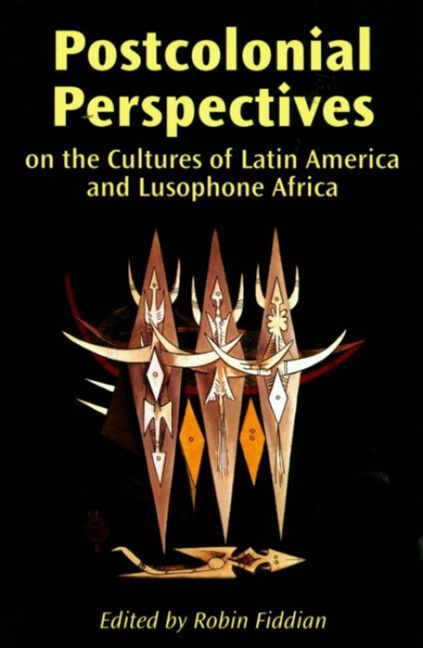Book contents
- Frontmatter
- Contents
- Preface
- Locating the Object, Mapping the Field: the Place of the Cultures of Latin America and Lusophone Africa in Postcolonial Studies
- Chapter One On Metropolitan Readings of Latin American Cultures: Ethical Questions of Postcolonial Critical Practice
- Chapter Two Ig/noble Barbarians: Revisiting Latin American Modernisms
- Chapter Three José Carlos Mariátegui: Culture and the Nation
- Chapter Four Doing Time in Peru: the Poetics of Multitemporality as Method for Cultural History
- Chapter Five America, Americanism and the Third World in the Work of Leopoldo Zea
- Chapter Six Fernando Ortiz's Transculturation: the Postcolonial Intellectual and the Politics of Cultural Representation
- Chapter Seven Caribbean Masks: Frantz Fanon and Alejo Carpentier
- Chapter Eight Colonial Crosswords: (In)voicing the Gap in Mia Couto
- Index
Chapter Four - Doing Time in Peru: the Poetics of Multitemporality as Method for Cultural History
- Frontmatter
- Contents
- Preface
- Locating the Object, Mapping the Field: the Place of the Cultures of Latin America and Lusophone Africa in Postcolonial Studies
- Chapter One On Metropolitan Readings of Latin American Cultures: Ethical Questions of Postcolonial Critical Practice
- Chapter Two Ig/noble Barbarians: Revisiting Latin American Modernisms
- Chapter Three José Carlos Mariátegui: Culture and the Nation
- Chapter Four Doing Time in Peru: the Poetics of Multitemporality as Method for Cultural History
- Chapter Five America, Americanism and the Third World in the Work of Leopoldo Zea
- Chapter Six Fernando Ortiz's Transculturation: the Postcolonial Intellectual and the Politics of Cultural Representation
- Chapter Seven Caribbean Masks: Frantz Fanon and Alejo Carpentier
- Chapter Eight Colonial Crosswords: (In)voicing the Gap in Mia Couto
- Index
Summary
Any cultural condition to be described as postcolonial includes a construction of temporalities which in specific ways adjust or refuse to adjust to centralizing narratives of the modern. One of the concerns of this essay is the differential sense of time that is produced by the works of the Peruvian poet César Vallejo. Consideration of his texts places before us the way the cultural field is assembled in the study of literature in order that senses of time—and of place—can be extrapolated for discussion. There is not one way to compose that field but various, and the different choices, which are displayed in works of literature, also confront the student of literature as decisions to be taken. Not that literary works follow on after the fact, simply retracing patterns already marked out by other types of cultural action (such as sociology, philosophy or cultural studies): the most interesting works are the ones which alter available senses of time and space, inventing new ways of probing the field, which may be in advance of those produced anywhere else. Little attention is given to this fact in British universities, where the arts are virtually excluded from cultural studies. If relations are what any field is made up of and these cannot be given in advance but have to be worked out in the detailed action of exploring a specific field, then the work of a poet can be one such working out, and taken as a set of hermeneutic proposals.
To ask whether there is a Latin American hermeneutics of cultural history is not a useful way of framing the issues, however, since the question polarizes the answer into Latin American or non- Latin American, which would mean that the places from which any answer could be enunciated were already substantially given, and that the relations between terms had, to an important extent, already been decided upon. For example, to decide what is colonial or non-colonial in terms of discrete objects is not a viable proposition: objects and words became doubly inflected during the colonial period in Peru—it depended on who was using them, in what way, and where, the differences of place varying as functions of socioethnic location.
- Type
- Chapter
- Information
- Publisher: Liverpool University PressPrint publication year: 2000



